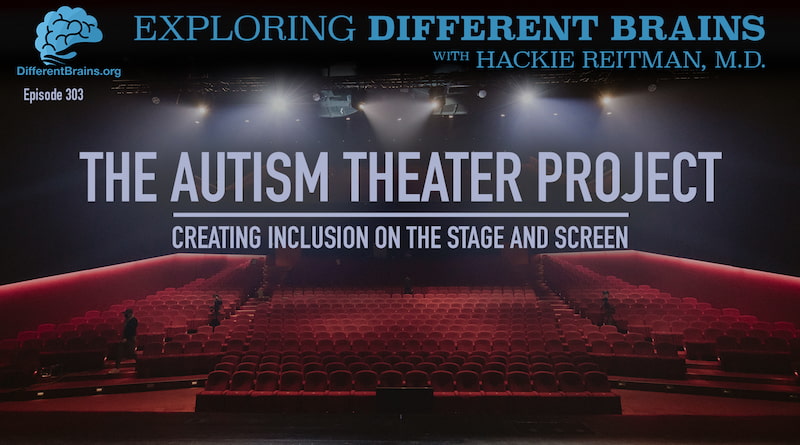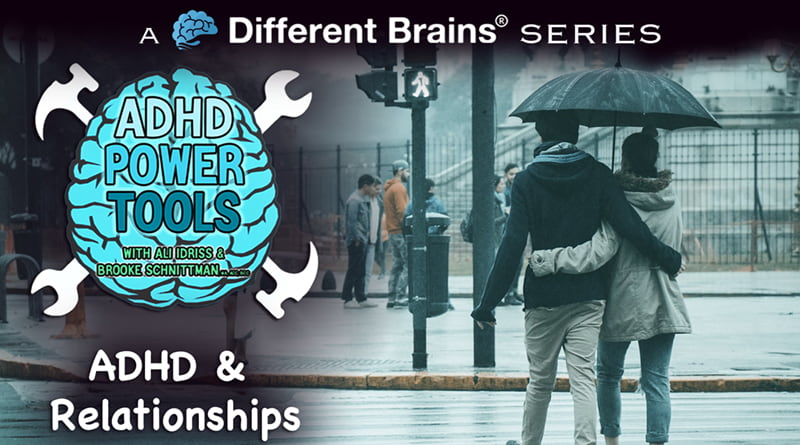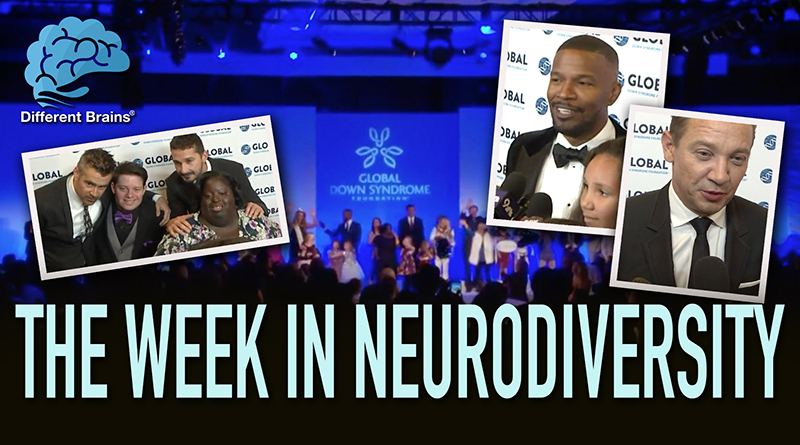Executive Function | ADHD Power Tools w/ Ali Idriss & Brooke Schnittman

(11 mins) In this episode of ADHD Power Tools, Ali and Brooke discuss how executive function plays a role in ADHD!
Brooke Schnittman, MA, ACC, BCC is a certified coach who works with children, students, teens, adults, and parents with or without ADHD. She has been nominated for multiple awards including “Best In Show Community” and ”Advocating For Another.” She is the creator of What’s Next and ADHDEdCamp.
Ali Idriss is a Different Brains intern and ADHD self-advocate. He aspires to share his journey and help others with the tools that have allowed him to overcome many of the challenges along the way, as he co-hosts ADHD Power Tools and conducts research on college students with ADHD. Ali has completed his bachelor’s in Biological Sciences at Florida Atlantic University and is currently completing his second bachelor’s in Neuroscience and Behavior at Florida Atlantic University. He is also an Emergency Medical Technician and is aspiring to become a physician
For more on Brooke and her work, visit: https://www.coachingwithbrooke.com/
FULL TRANSCRIPTION:
ALI IDRISS (AI): Hello, Brooke today, I want to ask you, how does executive function play a role for us with ADHD?
BROOKE SCHNITTMAN (BS): I’d like to look at the Dr. Thomas Brown model of the six ADHD clusters. And those are the executive functions and in each executive function, so I’ll just name them real quick: focus, effort, emotion, memory, action — all of those have like sub clusters with elements of how they impact ADHD. So everyone has executive functions, and it’s in the prefrontal cortex of the brain. But individuals with ADHD may have more chronic difficulty in the executive functions, then, you know, the occasional impairments of executive functions and everyone else. So they have much more difficulty in the development and the use of these functions than most of the others have the same age and developmental level. And in fact, individuals with ADHD are typically like 30% less in their social and emotional development than neurotypicals. So the Thomas Brown model really just explains how all of these executive functions work together for people with ADHD. And in childhood, it’s more on a basic level. And then as the brain develops the executive functions show, you know more and your brain develops around the age of 25. And sometimes not until age 30. So as I mentioned, basic forms in young children and gradually become more complex in adults.
BS: So how does this show up in your adult life? So activation, which is the first cluster that Dr. Thomas Brown talks about, can appear like organization of tasks, materials, prioritizing tasks, getting started on working tasks. So it’s like, getting that your brain activated to do the thing. So, very often, we put off things that we don’t really have deadlines on or aren’t super excited about. And because of that, we wait until the urgency of the last minute. And that’s where many individuals with ADHD suffer that they can’t activate or get started on a task, unless it has its, you know, there’s a deadline, or it’s super motivating. So when people look at children, for instance, and say, okay, they can play video games all day long, I don’t understand how my child has ADHD, you know, because they can just sit there and focus on video games, or doing art. Those ADHD symptoms of activation, focus, effort, emotion, memory, action, all of those are not seen because it’s of something of interest. So as I mentioned, all of these clusters work together, focusing, so it’s not only focusing on a task, but it’s also the ability to shift and sustain the focus even on tasks that might not be super motivating for you.
Effort. So can you sustain your effort? Can you regulate your alertness? So many ADHD, individuals report they can perform short-term projects well, but have more difficult time with longer term projects, breaking it down and continue to stay motivated about that.
Emotion. We talked about emotional regulation and RSD. Managing frustration and modulating emotions is tough for individuals with ADHD. So that can manifest in a short-term project. So let’s say if we I’m sorry, long-term project, as I was mentioning in the last cluster, which is focus. So if you’re having difficulty going from, you know, starting the first step to the second step, you might get frustrated because you only know how to do that first step and you don’t know how to get to the second step. So you might just give up at that point, or you might not have the right information to move forward. And that can be flustering for you.
Memory, so we’re talking about like working memory and accessing recall. So if I gave you directions to a house, I mean, I don’t know who gives verbal directions anymore except for my dad. Sorry, dad. But I, we all put it into our GPS, right or on our phone, we put it in Google Waze, whatever. But if I tell you, Okay, Ali, to get to my house from where you are, you’re gonna have to take on any five all the way up, make a left on Boyton Beach Boulevard, then from there drive approximately two miles, then you’re gonna go west, and then you’re gonna make a left on Acme dairy. And from there, make sure that you stop at the guardhouse and give them your name and information. And then from there, you’re gonna make a right and then there’s two streets down, you’re gonna make left and my house is the last one on the right, and make sure that you park in the driveway, to the left of my husband’s car.
AI: Mm hmm. No, no way.
BS: No way. So that’s working memory in order for you to be able to remember all of those things. People with ADHD typically remember the first and the last thing, not the things in the middle. So working memory is to hold on to information and retain information as it comes to you. It’s not long-term memory. I’m sorry, were you gonna say something?
AI: No, no, I wasn’t so good. I love this.
BS: Action — monitor and regulating self-action. So many people with ADHD have hyperactive behavior. And even those without that can report problems in regulating your actions. So they might be too impulsive and what they say or they do jumping too quickly to conclusions. I actually just have this discussion in my adult ADHD group, like: “how do you control being impulsive and then regretting what you say to people around you and not have RSD after that?” So this is very common, and we can certainly talk about the strategy for that on another call, because that is twofold and has a lot of information. But yes, we have a really hard time monitoring our impulsiveness, our action and slowing ourselves down when needed on specific tasks or conversations
AI: Is there anything else you want to add, any more clusters?
BS: I would just say that all these clusters really impact our emotional regulation. And because they all work together, that’s why we can get those like hard feelings of emotions when we can, when our mood when our executive functions aren’t working properly.
AI: I love these clusters, you know, I want to run it back to the activation cluster. Because that is the cluster that I find I found myself having difficulty with a lot in the past couple of years. Organizing and prioritizing and and activating — that word activating, just doing it. And I want to I just want to have a tool or two about that. There’s a lot of moments where we have a task, or we have a to-do or we got to do something, whether it was just getting up and going to run an errand or just going up to going to work or writing those for your class or just grabbing groceries, whatever it may be. Making your bed it could be simple STUFF, cleaning room, filing your taxes. And we just keep telling ourselves, we’re gonna do it. We’re back do it. Okay, I’ll do it now. Why am I not starting? Okay, okay. And the anxiety is eating you alive and you’re going to regret it’s gonna start falling and it’s like, oh, no, I’m not doing I’m not doing I’m not doing. I think something that has helped me before is getting a flashcard and writing really simple simple to do’s. You might have really little amount of to dues but they’re just so difficult and takes so long. So okay, maybe it’s time to just read a bunch of loads of to dues and just have a bunch of crossed off, which will give you end motivation and the activation.
BS: Oh yeah, get that dopamine kick.
AI: Yup. And it’s things like just drink water, wash your face have lunch, take your like, make your bed open your emails, just simple stuff like that, youk now?
BS: Yes, I’ve loved that. So that activation piece, which is so hard for individuals with ADHD, like they might have the best tools, but: how do I get started? You’re right, like sometimes doing a task that gives you dopamine before the tasks that you don’t want to do can energize you to do the task.
AI: Yes, exactly. Exactly. And I work right now I’m an ER technician in the ER, and I even back with my old job as a server in a restaurant. Right now. Everybody has, like right now in the ER everybody has their own system — the nurses the doctors and the techs and everybody else, all the other people that work in the ER, everybody has your own system. When I was training, I just got this job recently, I trained with two people, but then I started asking other people for their different opinions. Everybody has their own system of how to organize and prioritize and then go through the typical 12 hour day in the ER. And it really, you really got to figure out your own. Everyone’s system is different. And I think seeing everybody is I grabbed a little bit from everybody. And it’s super important when you’re trying to look for a system and kind of figure out your executive function, understand that you’re not going to just adopt someone else’s, you’re going to have your own everyday things work different for everybody. And it’s very, very important to just understand that.
BS: Absolutely.
AI: Yes.

Ali Idriss is a Different Brains intern and ADHD self-advocate. He aspires to share his journey and help others with the tools that have allowed him to overcome many of the challenges along the way, as he co-hosts ADHD Power Tools and conducts research on college students with ADHD. Ali has completed his bachelor’s in Biological Sciences at Florida Atlantic University and is currently completing his second bachelor’s in Neuroscience and Behavior at Florida Atlantic University. He is also an Emergency Medical Technician and is aspiring to become a physician.




